Home>Garden Essentials>Garden Plants>What Is Thyme Used For
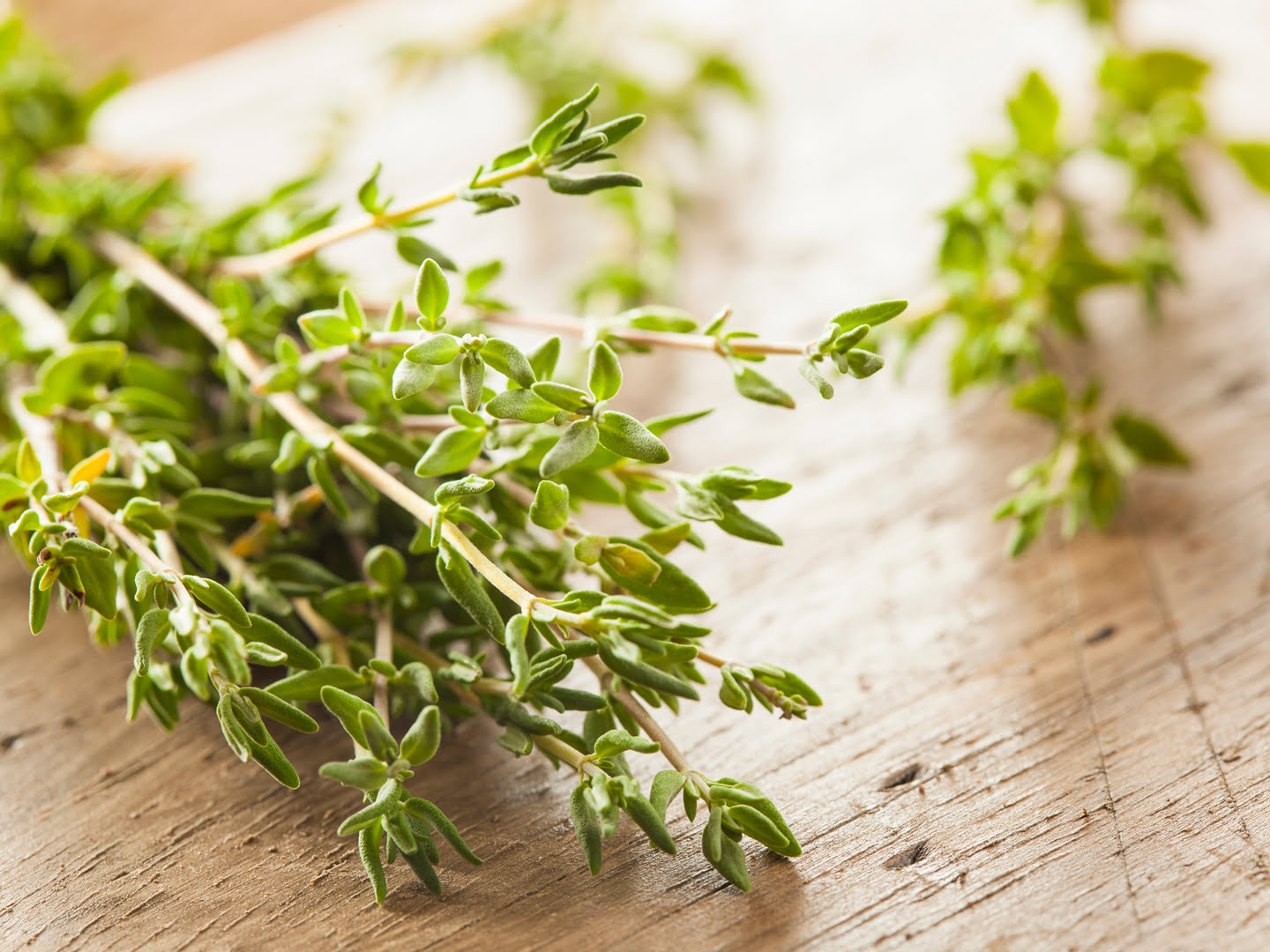

Garden Plants
What Is Thyme Used For
Modified: October 18, 2024
Discover the various uses of thyme in plants. From culinary applications to medicinal benefits, explore the versatility of this popular herb.
(Many of the links in this article redirect to a specific reviewed product. Your purchase of these products through affiliate links helps to generate commission for Storables.com, at no extra cost. Learn more)
Introduction
Thyme is a versatile herb that has been used for centuries in various cultures for culinary and medicinal purposes. With its fragrant aroma and distinctive flavor, thyme has found its way into kitchens around the world, adding a delightful touch to a wide range of dishes. But thyme is not just a popular culinary herb – it also boasts numerous health benefits and has been utilized in traditional medicine for its medicinal properties.
Thyme belongs to the mint family and is native to the Mediterranean region. It is a perennial herb with small, green leaves and delicate purple flowers. What sets thyme apart is its rich concentration of essential oils, primarily thymol, which gives it its characteristic aroma and flavor. Thyme is widely available in supermarkets, garden centers, and can even be grown at home in herb gardens or pots.
In this article, we will explore the various uses of thyme, from its culinary applications to its medicinal properties and beyond. So, let’s dive in and uncover the wonders of this remarkable herb.
Key Takeaways:
- Thyme is a versatile herb with culinary, medicinal, and aromatic uses, offering benefits such as enhancing flavors, supporting respiratory health, and providing natural insect repellent properties.
- From elevating dishes with its aromatic flavor to promoting mental clarity in aromatherapy, thyme’s diverse applications make it a valuable addition to culinary, wellness, and beauty routines.
Read more: What Is Thyme Seasoning Used For
Culinary Uses of Thyme
Thyme is an essential herb in the culinary world, known for its aromatic and earthy flavor. Its versatility allows it to be used in a wide variety of dishes, from soups and stews to roasted meats and vegetables. Here are some popular culinary uses of thyme:
- Seasoning: Thyme is commonly used as a seasoning for savory dishes, particularly in Mediterranean and French cuisine. Its robust flavor adds depth and complexity to dishes like roasted chicken, lamb, and grilled vegetables.
- Herb Blends: Thyme is often included in herb blends such as herbes de Provence and bouquet garni. These blends incorporate thyme along with other herbs like rosemary, oregano, and parsley, and are used to flavor soups, stews, and sauces.
- Sauces and Marinades: Thyme can be infused into sauces and marinades, imparting its distinct flavor. It pairs well with tomato-based sauces, enhancing the taste of pasta dishes, pizzas, and grilled meats.
- Breads and Baked Goods: Thyme can be added to bread dough to create flavorful loaves. It also complements well in savory baked goods like biscuits, focaccia, and savory scones.
- Infused Oils and Vinegars: Thyme-infused oils and vinegars are popular for adding flavor to dressings and marinades. These infused oils can be drizzled over salads, roasted vegetables, or used as a dip for crusty bread.
- Teas and Infusions: Thyme leaves can be steeped in hot water to create a soothing and aromatic herbal tea. Thyme tea is believed to have various health benefits, including soothing sore throats and reducing coughs.
When using thyme in cooking, it’s best to use the leaves rather than the stems, as the leaves contain the highest concentration of essential oils. Thyme can be used fresh or dried, but the flavor of fresh thyme is generally more pronounced. It is important to add thyme sparingly, as its flavor can be intense.
Next time you’re in the kitchen, don’t forget to reach for this versatile herb to elevate the flavors of your dishes.
Medicinal Uses of Thyme
Beyond its culinary applications, thyme has long been recognized for its medicinal properties. The herb contains potent compounds that have been used for centuries to address various health concerns. Here are some notable medicinal uses of thyme:
- Respiratory Health: Thyme has been traditionally used to support respiratory health. It contains compounds that act as expectorants, helping to alleviate congestion and coughs. Thyme can be consumed as a tea or used in steam inhalation to ease respiratory discomfort.
- Antioxidant and Anti-inflammatory: Thyme is rich in antioxidants and anti-inflammatory compounds that can help protect the body against oxidative stress and reduce inflammation. These properties may be beneficial in supporting overall health and potentially reducing the risk of chronic diseases.
- Digestive Aid: Thyme has been used to aid digestion and promote gastrointestinal health. It can help stimulate the production of digestive enzymes, relieve bloating and gas, and soothe stomach discomfort. Thyme tea or tinctures are commonly used for digestive support.
- Antimicrobial Properties: Thyme possesses antimicrobial properties, thanks to its active compounds like thymol. It has been used to help combat bacterial and fungal infections. Thyme essential oil is often used topically to clean wounds and prevent infection.
- Boosting Immune System: Thyme is believed to have immune-boosting properties, helping to strengthen the body’s defense against pathogens. It may help support the immune system and reduce the severity and duration of common illnesses like colds and flu.
It’s important to note that while thyme has been traditionally used for these purposes, it should not replace medical advice or treatment. If you are considering using thyme for medicinal purposes, it’s best to consult with a healthcare professional or a qualified herbalist for guidance.
Thyme can be incorporated into your daily routine by enjoying it as a tea, using it in cooking, or using thyme-infused products like oils or tinctures. Its availability and versatility make it an accessible and practical herb for promoting overall well-being.
Thyme in Traditional Medicine
Thyme has a rich history of use in traditional medicine, dating back to ancient civilizations. It has been valued for its therapeutic effects and has been incorporated into various remedies. Here are some ways thyme has been used in traditional medicine:
- Respiratory Support: Thyme has been traditionally used to ease respiratory issues such as coughs, bronchitis, and asthma. It can be consumed as a tea or inhaled as steam to provide relief and promote clearer breathing.
- Digestive Aid: Thyme has been utilized to aid digestion and alleviate digestive disorders such as indigestion, bloating, and flatulence. It stimulates the secretion of digestive enzymes and soothes the digestive system.
- Antiseptic and Wound Healing: Thyme has been recognized for its antiseptic properties and has been used topically to cleanse wounds, prevent infection, and promote healing. It can be applied as a poultice, infusion, or incorporated into ointments or salves.
- Expectorant: Thyme has been valued as an expectorant, assisting in the clearance of mucus and congestion from the respiratory system. It helps to alleviate coughs and cold symptoms.
- Antispasmodic: Thyme has been used as an antispasmodic to relax muscles and relieve spasms. It has been employed to address conditions like menstrual cramps, stomach cramps, and muscle tension.
- Antioxidant Properties: Thyme contains antioxidants that help fight against free radicals, which can cause damage to the body’s cells. By neutralizing these free radicals, thyme may contribute to overall health and well-being.
While thyme has a long history of use in traditional medicine, it’s important to note that scientific research is ongoing to validate its effectiveness and understand the mechanisms behind its medicinal properties. Thyme should be used as a complementary approach to healthcare and not as a substitute for professional medical advice.
As always, it’s recommended to consult with a qualified healthcare practitioner or herbalist before incorporating thyme or any other herb into your healthcare routine, especially if you have any underlying medical conditions or are taking medications.
Thyme as an Antimicrobial Agent
Thyme possesses powerful antimicrobial properties, making it a valuable natural remedy for combating various pathogens. The herb contains active compounds, such as thymol and carvacrol, which exhibit strong antimicrobial activity against bacteria, fungi, and even some viruses. Here are some key points about thyme’s antimicrobial properties:
- Antibacterial Effects: Thyme has been shown to have potent antibacterial properties. It can inhibit the growth of various bacteria, including those that cause foodborne illnesses such as Salmonella and E. coli. Thyme’s antimicrobial effects make it an excellent natural alternative for sanitizing surfaces or treating minor cuts and wounds.
- Antifungal Properties: Thyme also demonstrates antifungal activity, effectively inhibiting the growth of fungi like Candida. This makes it beneficial in addressing fungal infections, including those affecting the skin, nails, and even the oral cavity.
- Antiviral Activity: Studies have indicated that thyme may have antiviral properties, particularly against certain types of viruses. While more research is needed in this area, thyme’s antiviral potential suggests it may offer support in combating viral infections.
- Preserving Food: Thyme’s antimicrobial properties can be utilized to naturally preserve food. It has traditionally been used in curing meats, pickling vegetables, and in various culinary preparations to inhibit the growth of harmful microorganisms and improve food safety.
- General Hygiene: Thyme-based products, such as botanical hand sanitizers and mouthwashes, are becoming increasingly popular due to their natural antibacterial properties. These products provide an alternative to chemical-based counterparts, offering a natural means of maintaining hygiene while benefitting from thyme’s antimicrobial action.
Thyme’s antimicrobial effects are attributed to its active compounds, primarily thymol. These compounds disrupt the cell membranes of microorganisms, leading to their destruction or inhibition of growth. As a result, thyme has garnered attention as a potential natural alternative to conventional antimicrobial agents.
While thyme can be a helpful addition to your natural healthcare toolkit, it’s important to note that it should not replace professional medical advice or prescribed treatments. Additionally, it’s crucial to exercise caution and ensure proper dosage and application methods when using thyme or thyme-derived products.
Always consult with a healthcare professional, particularly if you have any underlying health conditions or are taking medications, to ensure thyme is suitable for your specific needs.
Thyme is commonly used as a culinary herb to add flavor to dishes, but it also has medicinal properties. It can be used to help alleviate coughs, sore throats, and respiratory issues. Steep thyme in hot water to make a soothing tea or use it in a steam inhalation for respiratory relief.
Read more: What Is Thyme Oil Used For
Thyme as a Natural Insect Repellent
If you’re looking for a natural and effective way to ward off pesky insects, thyme can be a valuable ally. The herb contains compounds that act as natural insect repellents, making it a safer alternative to chemical-based sprays and lotions. Here’s how thyme can help keep those bugs at bay:
- Repelling Mosquitoes: Thyme possesses natural mosquito-repelling properties. The scent of thyme, particularly the essential oil extracted from its leaves, can act as a deterrent for mosquitoes, reducing the likelihood of bites. Thyme-infused lotions or sprays can be applied to the skin or clothing for added protection.
- Deterrent for Flies and Gnats: The aromatic compounds found in thyme make it effective in deterring flies and gnats. Placing fresh or dried thyme near open windows or doorways can help keep these pests from entering your home. Alternatively, you can create a thyme-infused spray to use as an all-natural fly or gnat repellent.
- Protection against Ticks: Thyme’s natural insect-repelling properties extend to ticks as well. These blood-sucking pests can transmit various diseases, making their prevention essential. Applying a thyme-infused oil or spray to your clothing or exposed skin can help deter ticks and reduce the risk of bites.
- Safe for Outdoor Activities: Thyme’s insect-repelling properties make it an excellent companion for outdoor activities. Whether you’re camping, hiking, or enjoying a picnic, incorporating thyme-infused products into your routine can provide natural protection against pests, allowing you to fully enjoy your time in nature.
Thyme’s insect-repelling effects are attributed to its essential oil, which contains compounds like geraniol and linalool that bugs find unpleasant. These compounds can disrupt the insects’ sensory receptors, making them less likely to land or bite.
It’s important to note that while thyme can be an effective insect repellent, its effects may vary for different individuals and in different environments. Reapplication may be necessary, especially in areas with high insect activity or during prolonged outdoor exposure.
When using thyme as an insect repellent, be sure to perform a patch test on a small area of your skin to check for any adverse reactions. Additionally, consult with a healthcare professional if you have any specific concerns or if you are allergic to other members of the mint family.
Enjoy the outdoors without the hassle of insects by harnessing the power of thyme as a natural insect repellent.
Thyme as a Flavoring Agent in Alcoholic Beverages
Thyme’s unique flavor and aroma make it a delightful addition to a variety of alcoholic beverages. The herb’s herbal and slightly minty taste can provide an interesting twist to cocktails, spirits, and even homemade infusions. Here’s how thyme can be used as a flavoring agent in alcoholic beverages:
- Cocktails: Thyme can add depth and complexity to cocktails, enhancing their flavors and creating a more unique drinking experience. It pairs well with various spirits, such as gin, vodka, or tequila. Try muddling fresh thyme leaves in the base of your preferred cocktail or use a thyme-infused simple syrup to add a touch of herbal goodness.
- Garnishes: Sprigs of fresh thyme can be used as garnishes for cocktails, providing both visual appeal and a subtle fragrance. Tuck a sprig in the rim of a glass, use it as a stirrer, or place it on top of the drink for an elegant touch.
- Infusions: Thyme can be infused into various alcoholic beverages to add its distinctive flavor. Simply place fresh thyme sprigs or dried thyme in a bottle of your chosen spirit and allow it to steep for a few days. The result is a flavorful infusion that can be enjoyed on its own or used as a base for cocktails or mixed drinks.
- Liqueurs: Thyme-infused liqueurs can be made by combining thyme with a spirit like vodka or rum, along with some simple syrup for sweetness. Let the mixture sit for a few weeks to allow the flavors to meld together, then strain and enjoy the aromatic and flavorful liqueur.
- Herbal Spirits: Thyme can be used as one of the featured herbs in homemade herbal spirits. Combine thyme with other herbs and spices like rosemary, basil, or lavender, along with a neutral spirit, to create a uniquely flavored beverage. These herbal spirits can be sipped on their own or used in cocktails.
Thyme’s versatility as a flavoring agent allows for experimentation and creativity in mixology. The herb’s herbal notes and gentle mintiness can complement a wide range of flavors, making it a popular choice among bartenders and enthusiasts alike.
When using thyme in alcoholic beverages, it’s important to use the appropriate amount to achieve the desired balance of flavors. Start with a smaller quantity of thyme and gradually increase if needed, as its flavor can be quite potent. Remember, it’s always easier to add more thyme flavor than to remove it if it becomes overpowering.
Whether you’re a professional mixologist or simply enjoy experimenting with flavors, thyme can provide an exciting and aromatic twist to your favorite alcoholic beverages.
Thyme in Aromatherapy
Thyme is widely used in aromatherapy for its distinct and invigorating fragrance. The essential oil derived from thyme contains powerful compounds that can have various therapeutic effects on the mind and body. Here are some key points about thyme’s use in aromatherapy:
- Mental Clarity and Focus: The aroma of thyme essential oil is known to stimulate the mind and promote mental clarity. It can help improve concentration and focus, making it beneficial for studying, working, or any task that requires cognitive alertness.
- Energizing and Uplifting: Inhaling the scent of thyme oil can have an energizing and uplifting effect on the mood. It can help combat fatigue, boost energy levels, and uplift the spirit, making it a valuable tool for those in need of an emotional lift.
- Stress Relief and Relaxation: Thyme essential oil has calming properties that can help reduce stress, anxiety, and nervous tension. Its soothing aroma can promote relaxation and induce a sense of tranquility, making it useful for unwinding after a long day.
- Air Purification: Thyme oil has antibacterial and antifungal properties that can purify the air and eliminate airborne pathogens. Diffusing thyme oil in your home or workspace can help create a clean and fresh environment by neutralizing bacteria, mold spores, and other harmful microorganisms.
- Dental Care: Thyme essential oil has been used in oral hygiene products due to its antimicrobial properties. It can be added to mouthwash or used in oil pulling to promote healthy gums and fresh breath.
- Respiratory Support: Inhaling thyme essential oil can help alleviate respiratory discomfort and support respiratory health. It has expectorant properties that can help clear congestion, reduce coughs, and promote easier breathing.
Thyme essential oil can be used in various ways for aromatherapy purposes. It can be diffused, inhaled directly from the bottle, added to bathwater, or incorporated into massage oils and skin care products. It’s important to dilute thyme oil properly and follow appropriate safety guidelines when using it topically or internally.
It’s worth noting that thyme essential oil can be quite potent, and some individuals may be sensitive to its strong aroma. As with any essential oil, it’s recommended to do a patch test and consult a qualified aromatherapist or healthcare professional before using thyme oil, especially if you have any underlying health conditions or are pregnant or nursing.
Harness the aromatic power of thyme essential oil to create a soothing and invigorating ambiance in your home or to provide natural support for your mental and emotional well-being.
Thyme in Cosmetics and Skincare Products
Thyme is not only a culinary and medicinal herb but also a valuable ingredient in cosmetics and skincare products. Its natural properties make it a popular choice for enhancing the health and appearance of the skin. Here’s how thyme is used in the world of beauty:
- Antioxidant Protection: Thyme is rich in antioxidants that help combat free radicals, which can cause premature aging and damage to the skin. Antioxidants help neutralize these harmful molecules, promoting a youthful and radiant complexion.
- Antibacterial and Antiseptic Properties: Thyme’s antimicrobial properties make it an effective ingredient in skincare products targeting acne and blemishes. It can help reduce the growth of acne-causing bacteria, soothe inflammation, and promote clearer skin.
- Oil Control: Thyme has astringent properties that can help regulate sebum production, making it beneficial for oily and combination skin. By reducing excess oil and tightening the pores, thyme can contribute to a more balanced complexion.
- Skin Brightening: Thyme extract or oil can help improve the appearance of dull and uneven skin tone. It contains compounds that can help fade dark spots, even out skin discoloration, and promote a more radiant complexion.
- Anti-Inflammatory Benefits: Thyme’s anti-inflammatory properties can provide relief for skin conditions such as eczema, psoriasis, and rosacea. It can help soothe redness, irritation, and itching, promoting a calmer and healthier complexion.
- Exfoliation and Cleansing: Thyme can be used as a gentle exfoliant when combined with other natural ingredients. Its small particles help lift away dead skin cells, revealing smoother and brighter skin. Thyme-infused cleansers can also help remove dirt, excess oil, and impurities from the skin.
Thyme can be found in a variety of cosmetic and skincare products, including cleansers, toners, masks, serums, and creams. Its versatility allows it to be incorporated into various formulations to address specific skincare concerns.
When using thyme-based products, it’s important to follow the instructions provided and conduct a patch test to check for any potential allergic reactions. If you have sensitive skin or any existing skin conditions, it’s advisable to consult with a dermatologist before incorporating thyme or thyme-derived products into your skincare routine.
Enjoy the benefits of thyme in your beauty regimen and let its natural properties enhance the health and radiance of your skin.
Read more: What Is Ground Thyme Used For
Conclusion
Thyme is an extraordinary herb that offers a multitude of benefits. From its versatile use in the culinary world to its therapeutic properties in traditional medicine and aromatherapy, thyme has captured our attention and piqued our interest. Whether you’re looking to enhance the flavors of your dishes, explore the realm of natural remedies, or create a soothing ambiance, thyme has something to offer.
Culinary enthusiasts can delight in thyme’s aromatic and earthy flavor, incorporating it into a variety of dishes, from soups and stews to breads and cocktails. The culinary uses of thyme are boundless, allowing for experimentation and creativity in the kitchen.
In traditional medicine, thyme has been valued for its numerous health benefits. Its antimicrobial, expectorant, and antioxidant properties make it a valuable ally for supporting respiratory health, digestion, and overall well-being. However, it’s important to remember that thyme should complement, not replace, professional medical advice and treatment.
In aromatherapy, thyme’s invigorating scent can promote mental clarity, relaxation, and stress relief. Its therapeutic effects extend beyond the mind, as inhaling thyme essential oil can support respiratory health, purify the air, and provide a boost of energy and vitality.
Thyme’s benefits also extend to the realms of natural insect repellents, cosmetics, and skincare products. By harnessing its natural properties, thyme can keep bugs at bay, enhance beauty routines, and contribute to healthier skin.
As we conclude our exploration of thyme and its remarkable qualities, it’s important to emphasize the value of using thyme responsibly and in moderation. Whether consumed, applied topically, or inhaled, it’s essential to adhere to proper dosages and dilutions, and to be aware of any potential allergies or contraindications.
Thyme’s rich history, versatility, and beneficial properties make it a cherished herb for many. So, the next time you come across this fragrant, flavorful herb, embrace its potential and let it add its unique touch to your culinary creations, well-being routines, and everyday experiences.
Frequently Asked Questions about What Is Thyme Used For
Was this page helpful?
At Storables.com, we guarantee accurate and reliable information. Our content, validated by Expert Board Contributors, is crafted following stringent Editorial Policies. We're committed to providing you with well-researched, expert-backed insights for all your informational needs.
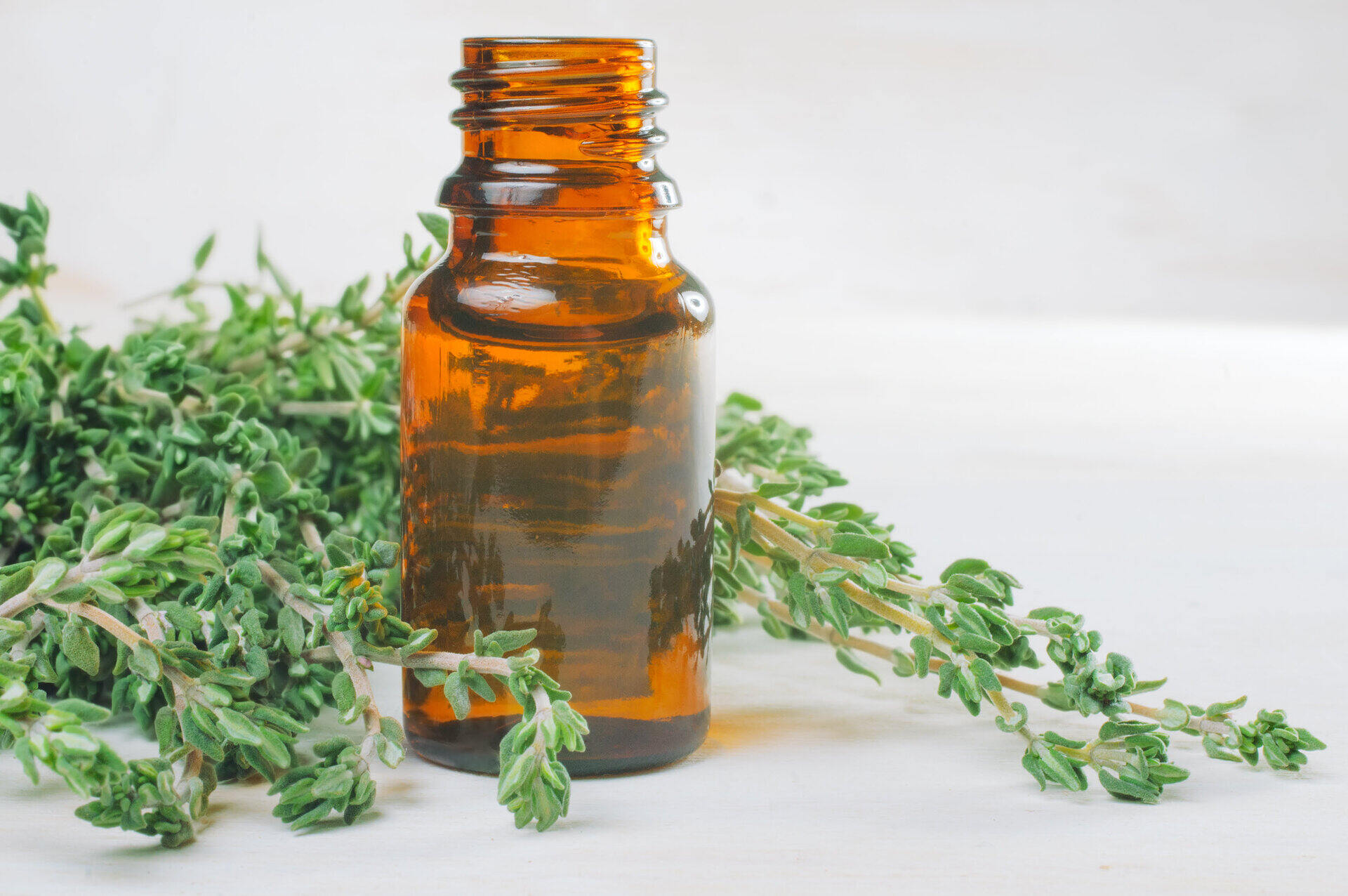
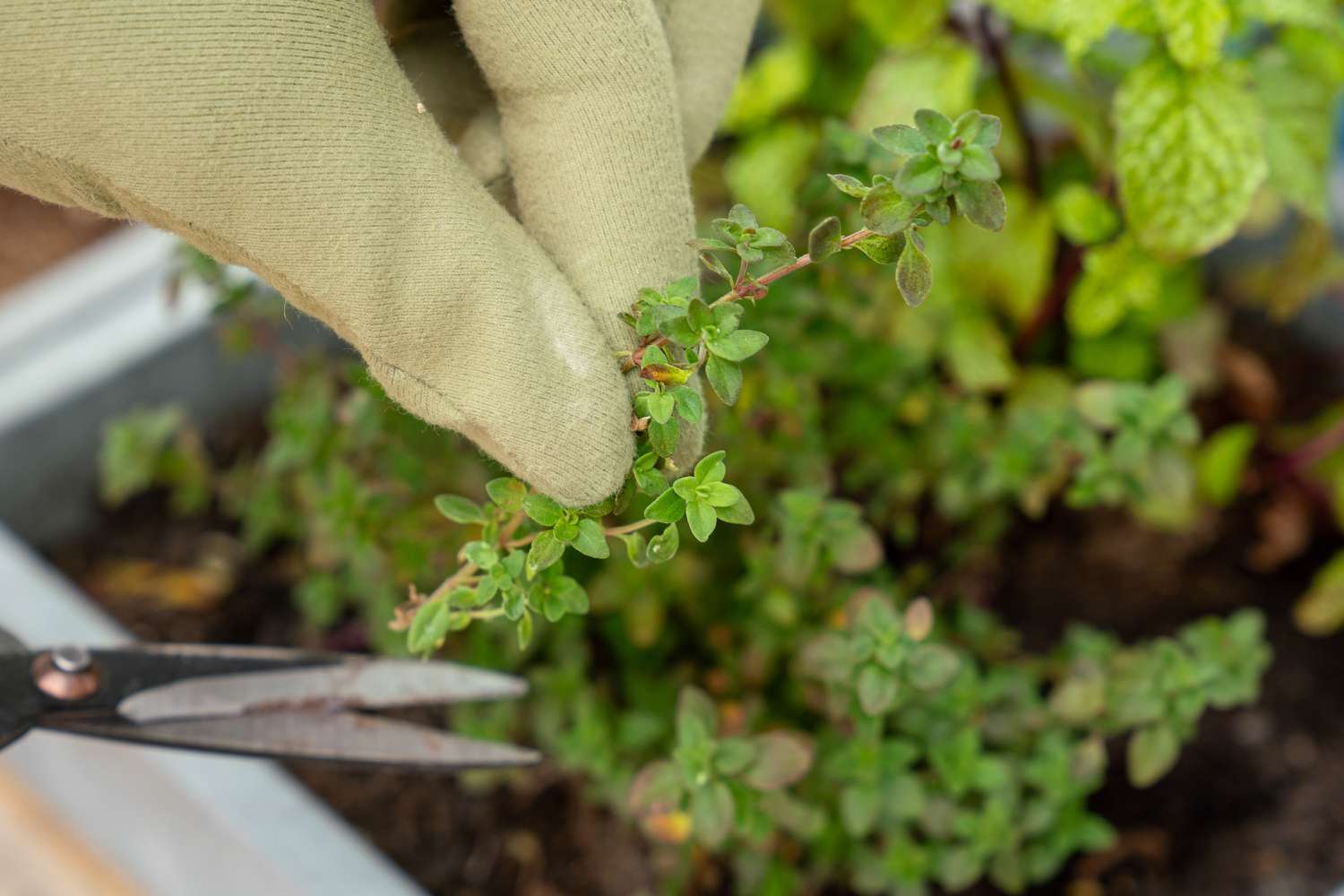
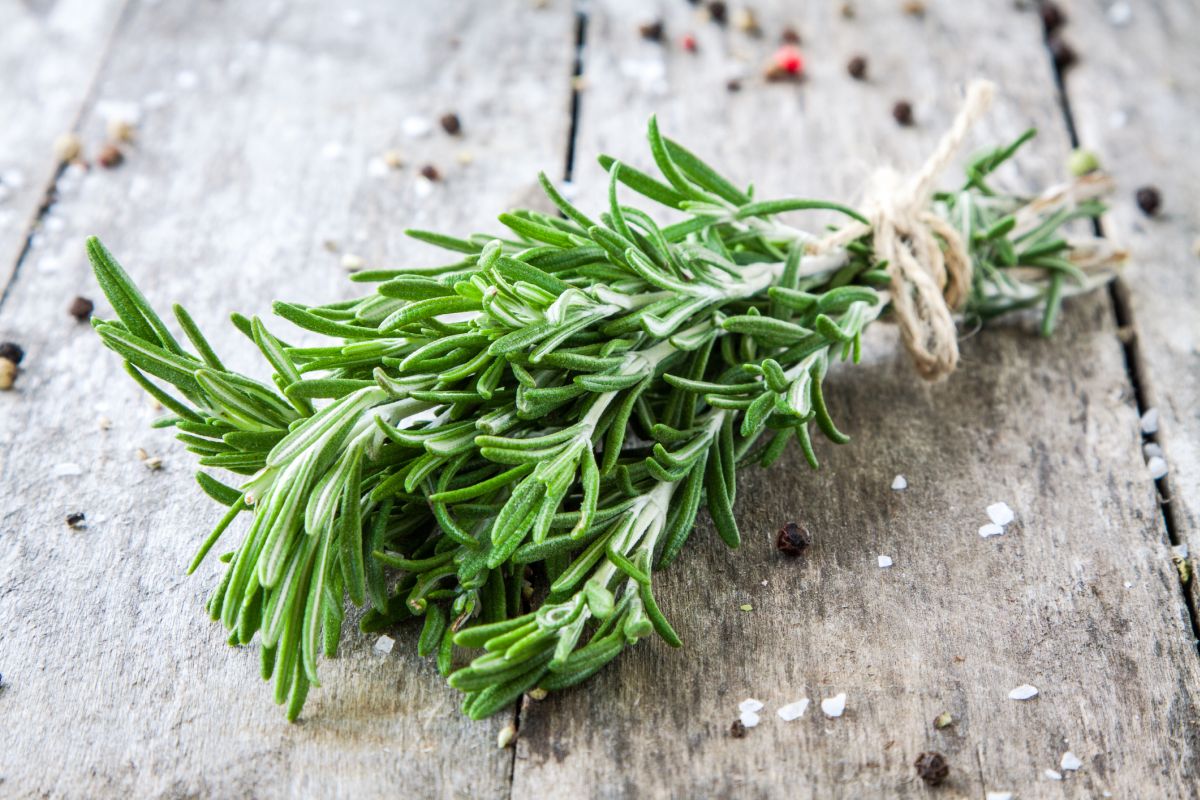
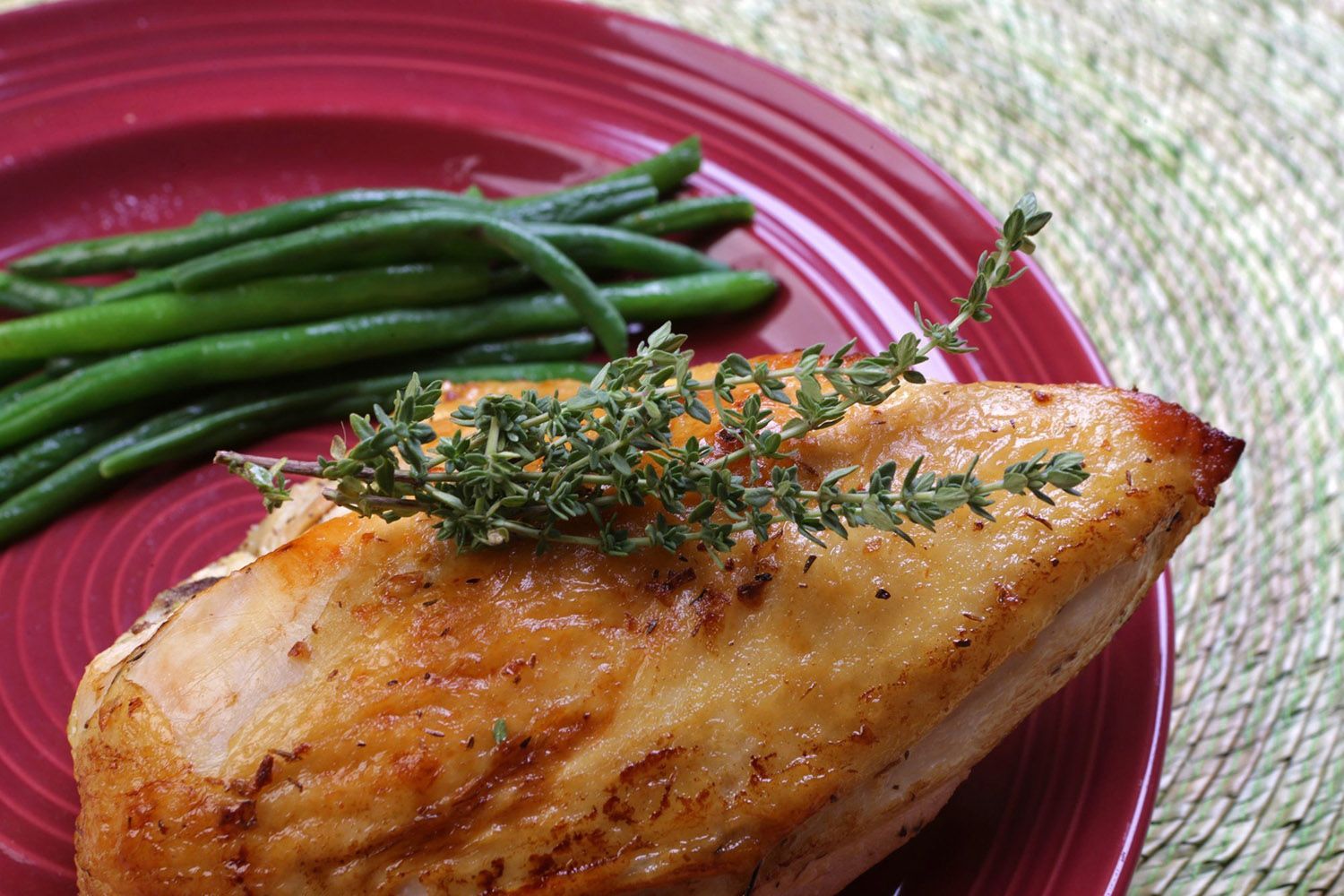
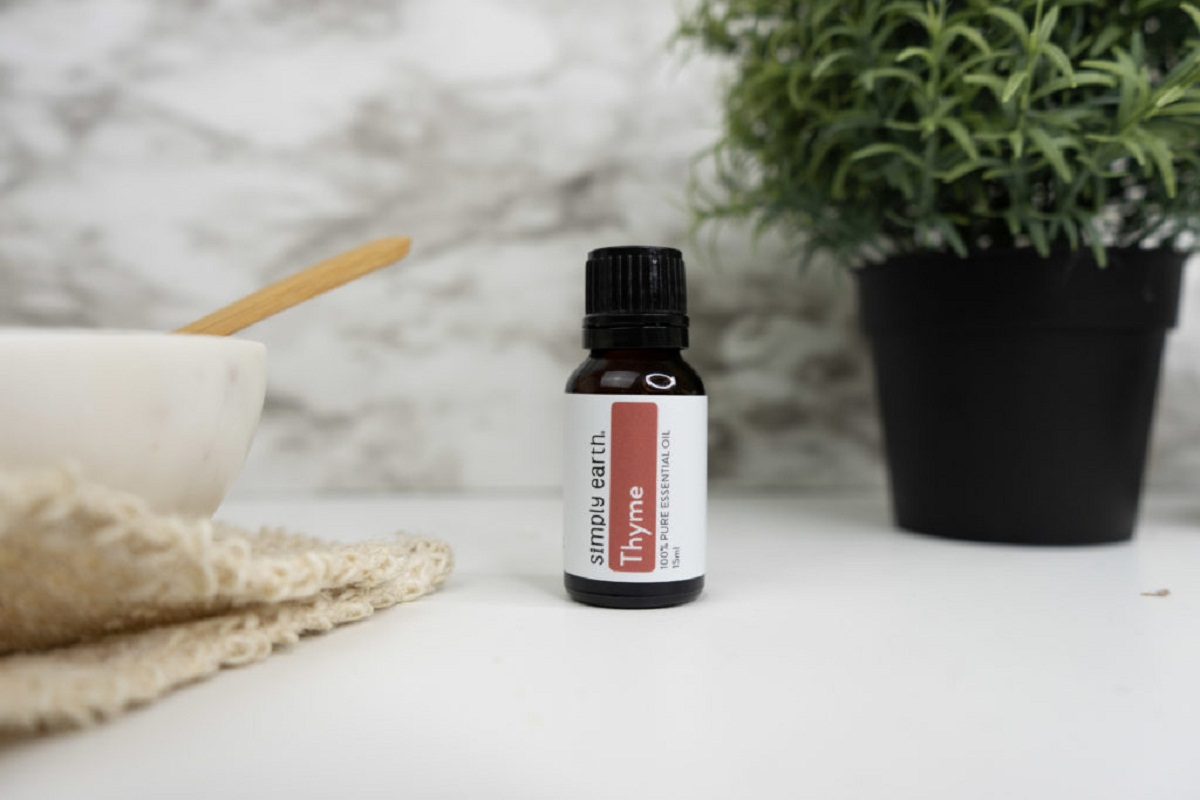
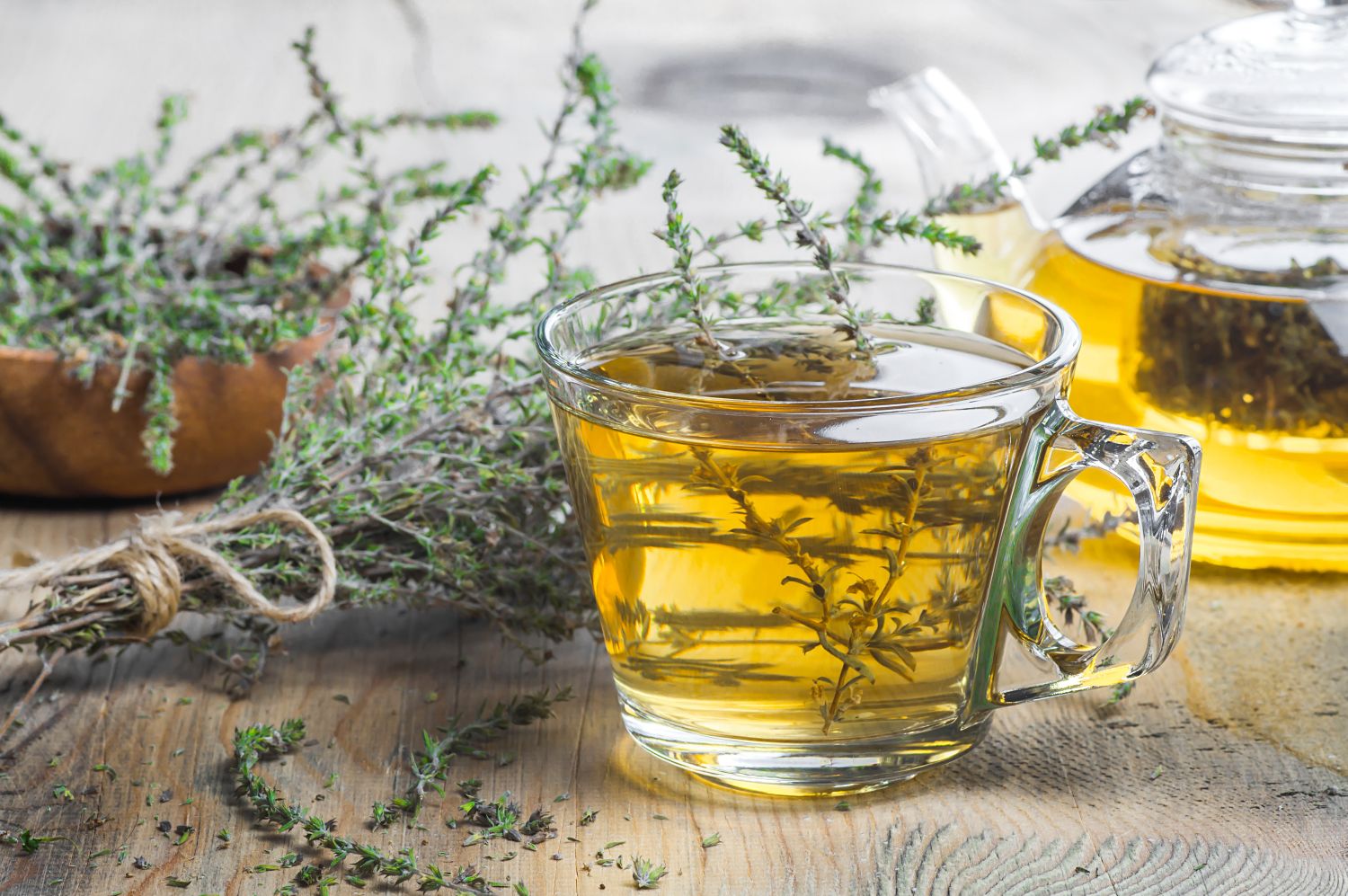
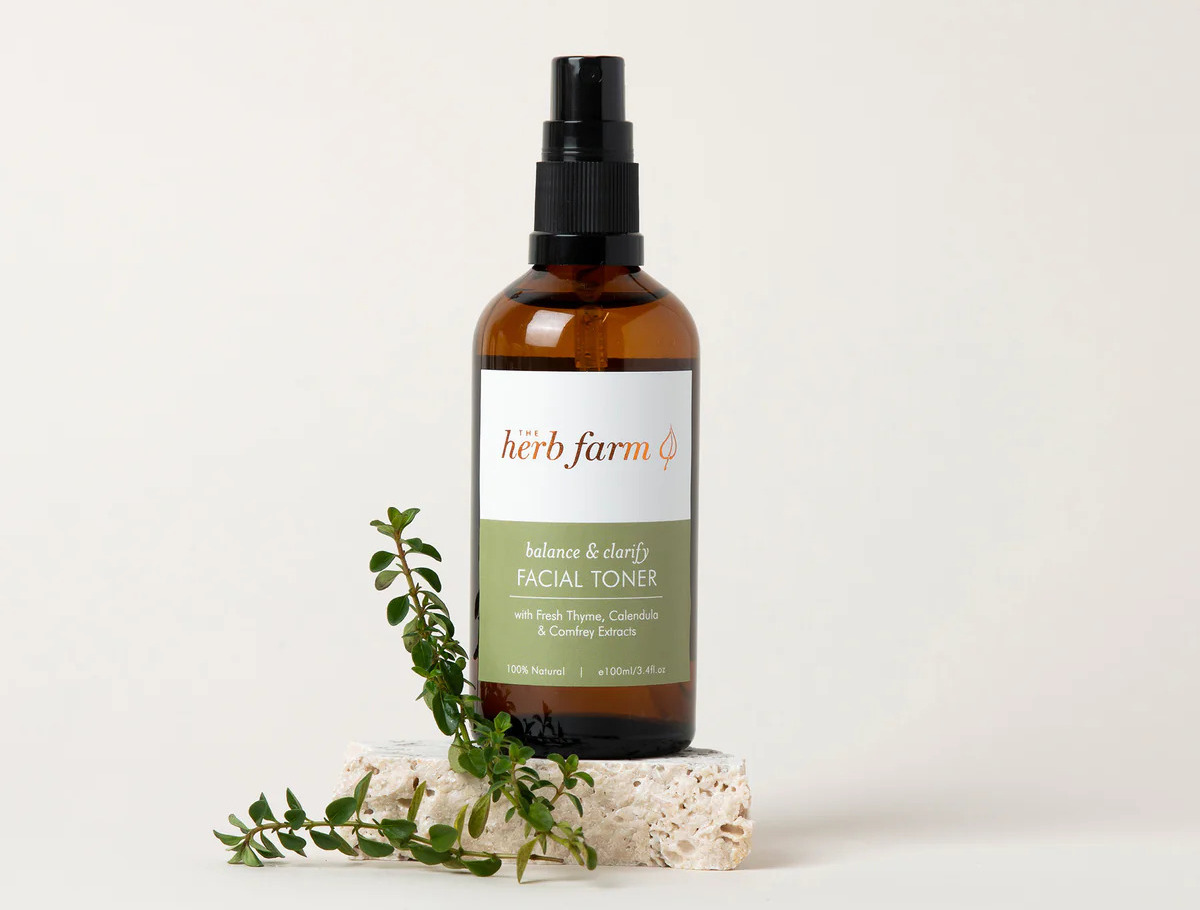
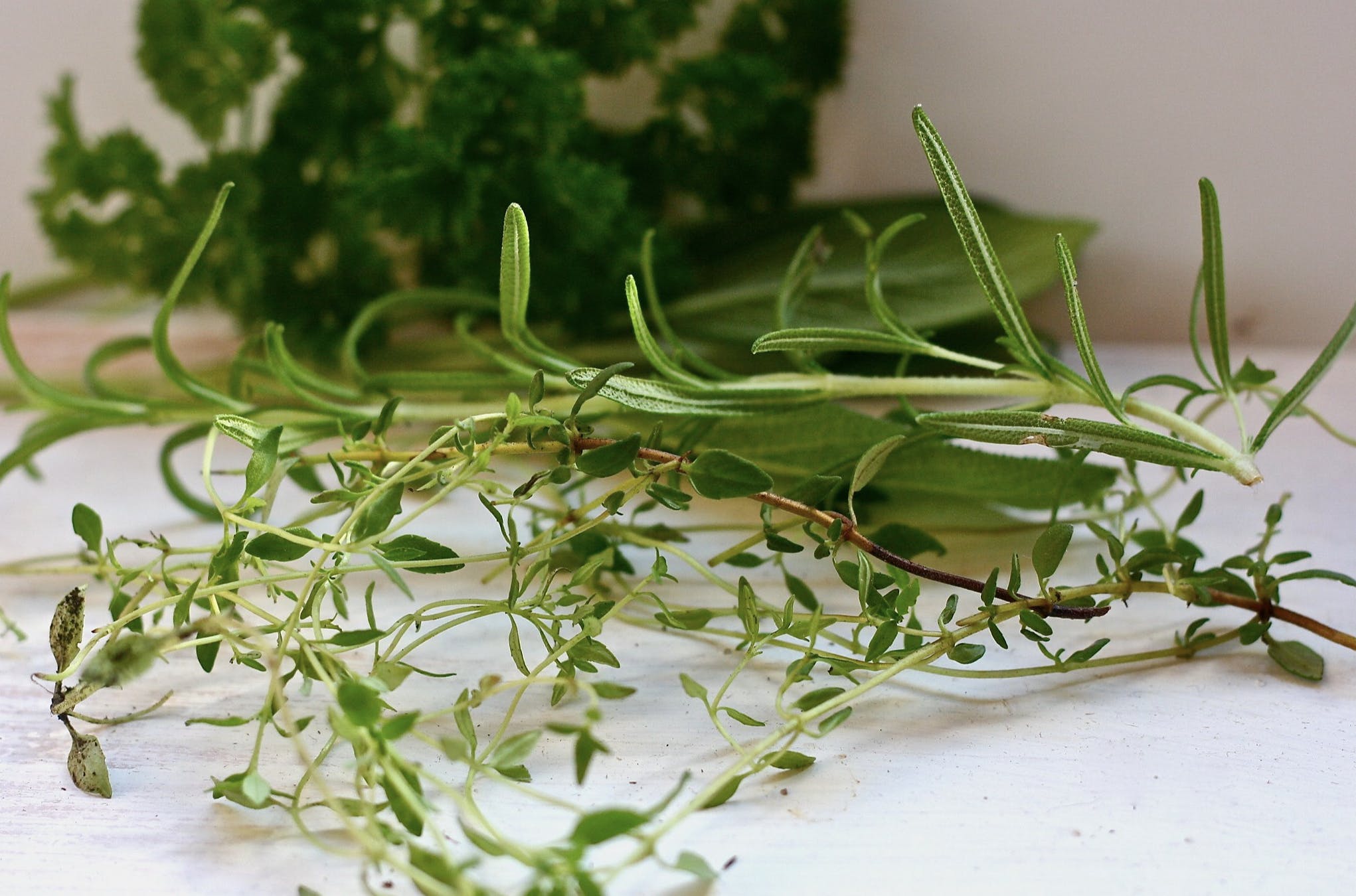
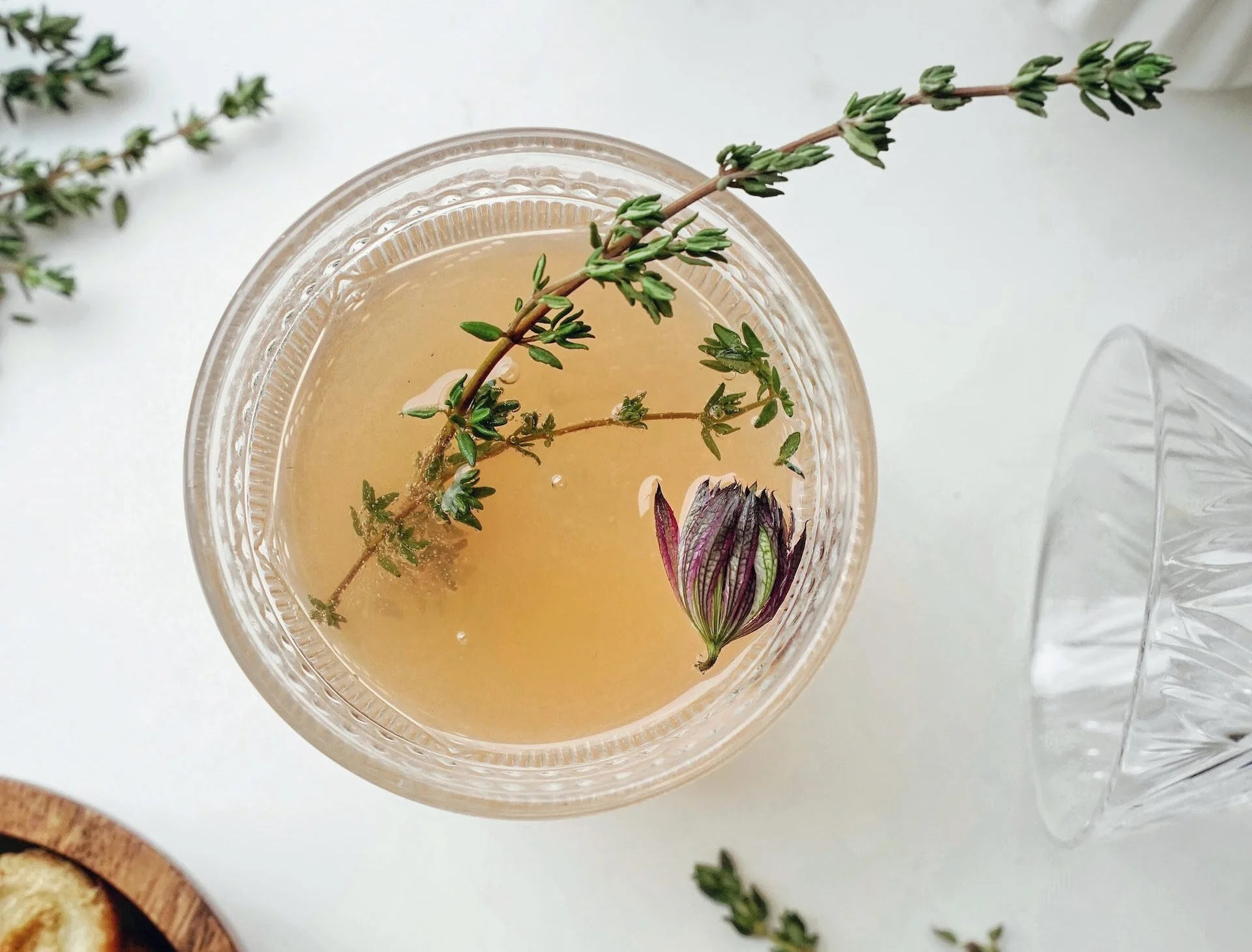
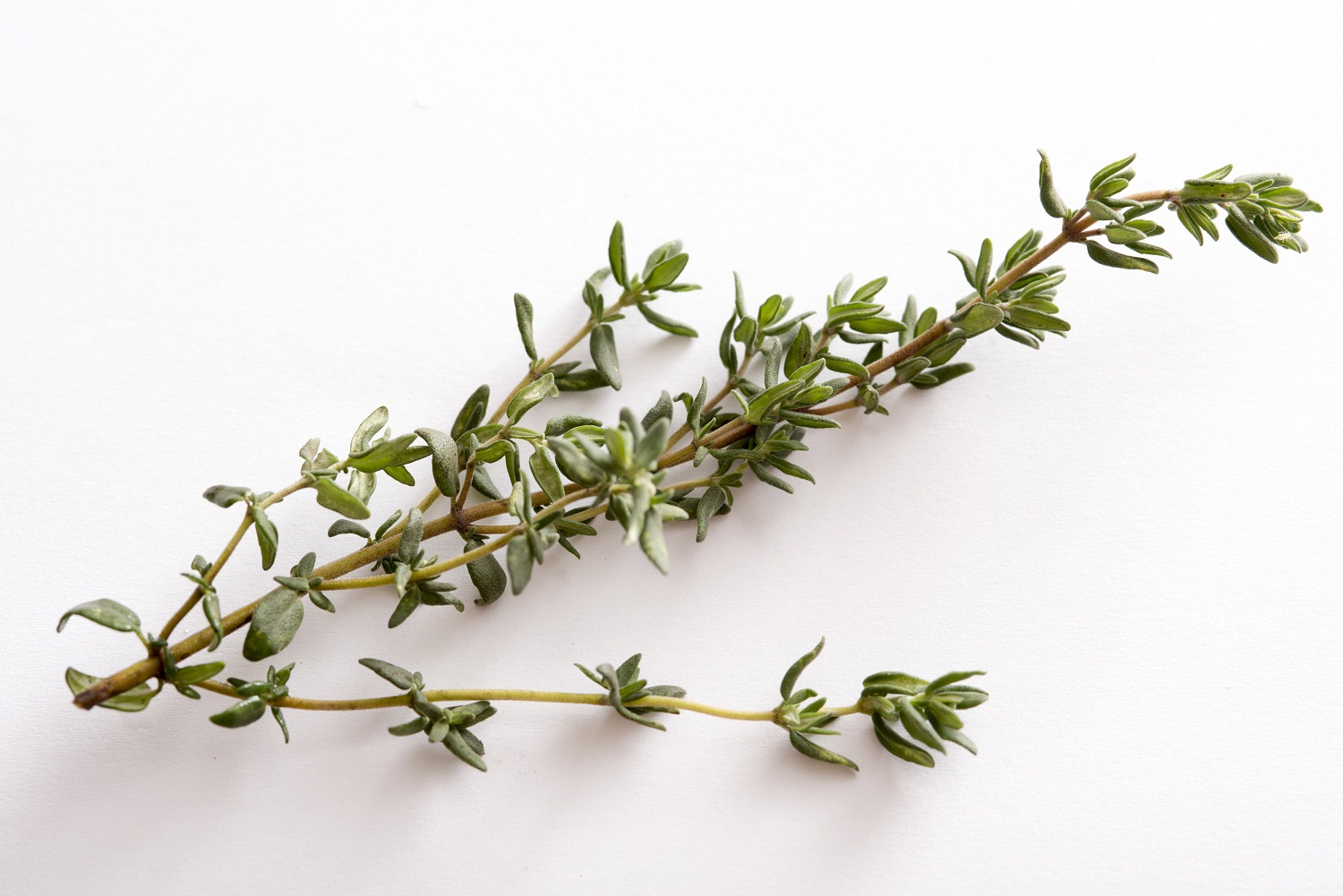
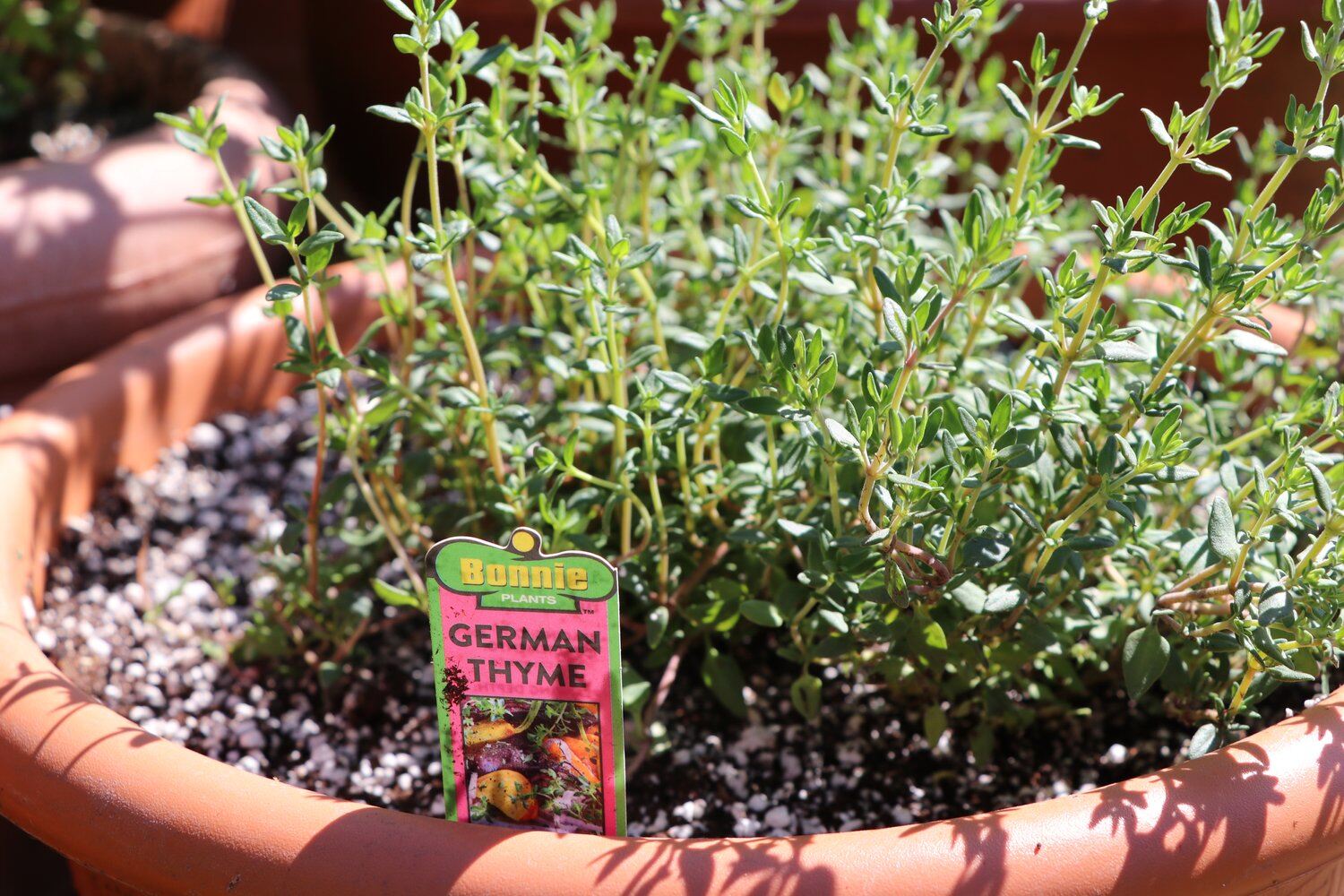
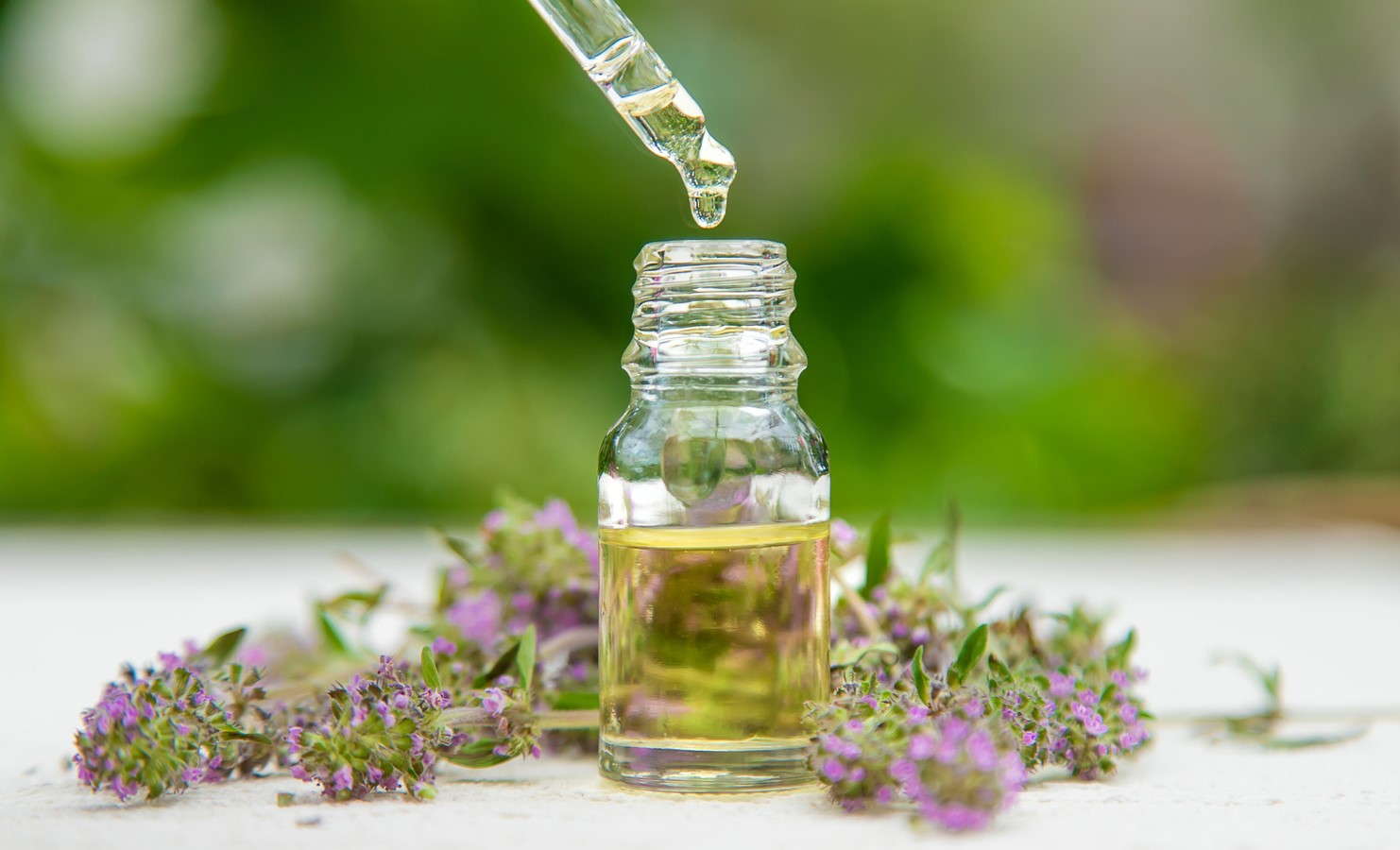
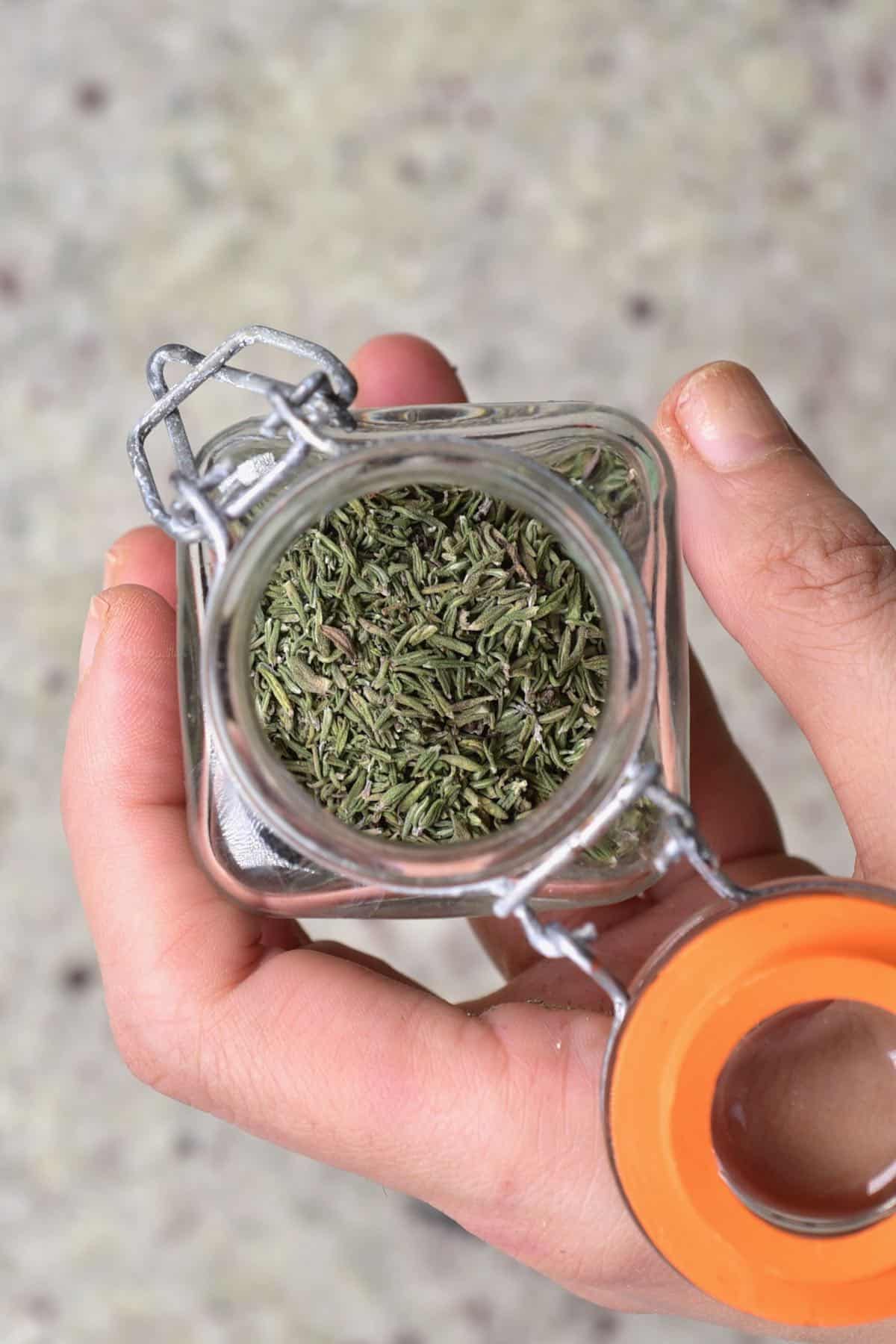

0 thoughts on “What Is Thyme Used For”